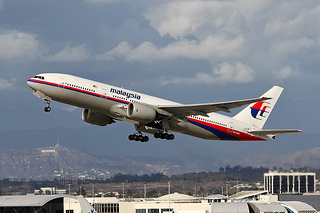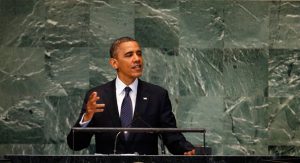
In the wake of the recent disappearance of Malaysia Flight MH370, attorneys from the United States do not have to follow a federal no-solicitation rule. But victim’s families from past aviation accidents say attorneys should still respect the rule and the family members.
In the event of an aviation disaster, law firms in the United States must follow a 45-day federal rule that prohibits American attorneys from communicating to victim’s families.
But since the plane’s disappearance occurred outside the United States, the rule does not apply because the plane is not a U.S. carrier.
“The United States can only enforce its laws within its own country,” said Paul Sledzik, a director at the National Transportation Safety Board. “In the case of Malaysia, it does not apply. If firms were to violate the law within here in the United States, we would certainly be involved and taking a look at that. But they could do whatever they like in a foreign country.”
Several U.S. firms flew to Beijing to seek for potential clients just 16 days after the plane went missing, according to Christian Science Monitor. One Chicago firm called Ribbeck Law Chartered was among them. Ribbeck said they offered their services to relatives of more than 100 passengers from Malaysia Airlines but only 10 relatives signed up.
Clifford Law offices are one of the few firms in the country that specializes in aviation.
Colin Dunn, an attorney at Clifford, said he hears rumors all the time about firms that put people on planes and send them all over the country and globe. He believes all firms should follow the “spirit” of rule regardless if it applies or not.
“I think it’s important to just respect the families and what they’re going through,” said Dunn. “We certainly believe in the rule and we think it’s a good statute and we follow it. We wouldn’t solicit anyway but we certainly wouldn’t get involve in that kind of soliciting, it’s just not appropriate.”
Although the rule does not apply, Ribbeck’s practices displeases some people, including Jennifer Stansberry who lost her brother in the American Eagle accident on October of 1994.
Stansberry said that it is OK if family members contact the attorneys, but if not, firms should wait to solicit clients later in time when they know more about the situation.[pullquote]“They are sending runners to obtain clients when they are at their most vulnerable,” said Stansberry. “It’s basic common respect for your common man. Do you respect the position and space they are in? They are traumatized, why can’t they ethically step back and say this is not the right thing to do?”[/pullquote]
“They are sending runners to obtain clients when they are at their most vulnerable,” said Stansberry. “It’s basic common respect for your common man. Do you respect the position and space they are in? They are traumatized, why can’t they ethically step back and say this is not the right thing to do?”
The 45-day rule was one out of a few other provisions that is detailed in the Aviation Disaster Family Assistance Act of 1996.
Stansberry and other victim’s families from aviation accidents in the early 90s including American Eagle Flight 4184, Valujet Flight 592 and other accidents, lobbied for the act to improve the recurring problems within the airline industry and outside of it after an aviation accident.
The 45-day rule was included in the act because families complained about the constant harassment by attorneys just a few days or weeks after a crash. Initially, the rule was set at 30 days but in 2000 congress extended it to 45 days.
Attorneys may not contact victim’s families regarding action for personal injury or wrongful death. Attorneys are also not allowed to provide copies of retainer agreements (work for hire contract) or invite the victims to contact the lawyer through the firm’s website.
Terri Severin, who lost her nephew and sister in Flight 4184 and who also helped put the legislation into law, said families aren’t prepared for the intrusions of the media, insurers and the litigators.
She also said the 45-day rule allows families to adjust a bit to the enormous changes in their lives. She has seen “incredible changes” based off the 1996 act because families are now put first after an aviation accident.
But for situations that are not governed by the 45-day law, like Malaysia, she thinks it’s a moral and an ethical approach that she could only hope for that will guide attorneys.
“It’s unfortunate across the board that people are guided by a moral compass for their action and the families have to deal with the results of that,” Severin said.















Be First to Comment